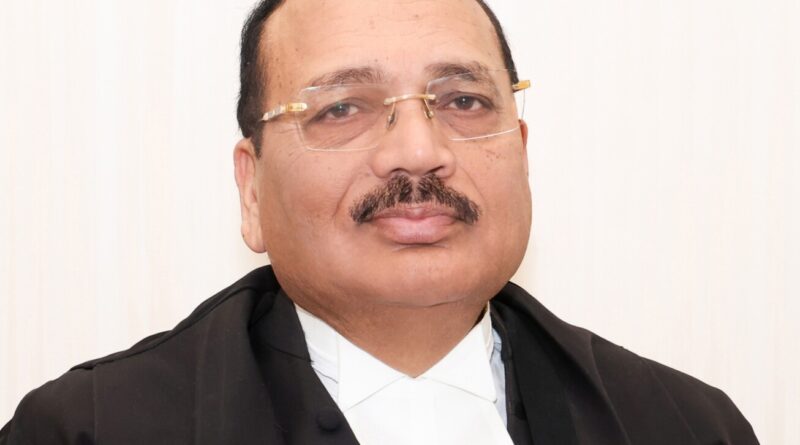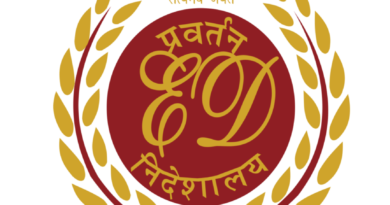Digital Violence Is a Constitutional Threat: CJI-Designate Surya Kant Calls for Robust Protection of Women Journalists
(By Syed Ali Taher Abedi)
New Delhi, Saturday: CJI-designate Justice Surya Kant on Saturday voiced deep concern over the escalating online abuse and targeted digital harassment faced by women journalists, calling it a threat not only to individual dignity but also to press freedom and democratic discourse.
“Perpetrators misuse private data, fabricate incriminating content, ‘troll’ incessantly, and manipulate images for psychological and professional harm. These perpetrators, instead of engaging with their actual work or the opinions expressed by women journalists, utilize these methods of ‘online violence’ to belittle, induce fear, and discredit them professionally.”
Delivering the keynote address at the 31st anniversary celebrations of the Indian Women’s Press Corps (IWPC) in New Delhi, Justice Surya Kant urged media houses, regulatory bodies, and digital platforms to adopt concrete safety protocols to safeguard women reporters and editors from what he described as a rapidly expanding “ecosystem of online hostility.”
“Digital abuse not only undermines the confidence and security of women journalists but also threatens press freedom by stifling the diversity and nuance of public discourse”
Technology and AI have created new vulnerabilities
Speaking on the theme “Power of Women in Media and Intrusive AI in Media”, Justice Surya Kant warned that the weaponisation of technology and artificial intelligence has created “unique vulnerabilities” for women journalists.
“It is essential that our media organizations and governing bodies develop strong protocols and industry-wide regulations that specifically protect women journalists as well as victims of ‘false’ narratives.”
He noted that many of them are frequently targeted through:
- Doctored images,
- Fabricated content,
- Persistent trolling campaigns, and
- Coordinated attempts to inflict reputational harm.
“These practices,” he said, “constitute a serious assault on press freedom, and by extension, on the quality of our public discourse.”
“Mutual support, open dialogue, and a shared vision are our best defences against the perils of unrestricted use of AI. By holding institutions and individuals accountable, demanding transparency, and refusing to lower ethical standards — on sites that we often call as ‘unsocial media’, we secure the foundation of true journalism and the health of our democracy.”
He stressed that the rights and freedoms guaranteed by the Constitution can be preserved only through collective vigilance and ethical commitment from all sectors, including the media, technology companies, civil society, and regulators.
“The spread of deepfake technology and doctored images only serves to amplify these dangers.”
“The victims endure reputational damage, loss of credibility, and even social ostracism. Often, the manipulated content persists online indefinitely, long after the story has retreated from the news cycle, making the damage permanent and devastating for those involved. As a responsible democracy, we cannot afford to normalize or tolerate such happenings as an ‘inevitable consequence’ of online discourse.”
“When women cover stories on politics, health, education, and social reforms, their journalism reflects the intricate Page 5 of 15 complexities of our society and fosters the democratic participation necessary for true progress.”
Women must be included at every level of media decision-making
Justice Surya Kant also underscored the need for greater representation of women in all tiers of the newsroom and media leadership.
He called for their inclusion in:
- Reporting and editorial roles,
- Policy setting,
- Technological adoption,
- Regulatory oversight, and
- Ethical reform mechanisms.
“A newsroom that excludes women from decision-making cannot claim to be truly reflective, representative, or just,” he remarked.
“With the passage of time, women have demonstrated that vision and competence—and not gender—are what make true pioneers in the media.”
Media solidarity is essential in the age of unsocial media
Highlighting the distortions created by unregulated and intrusive digital ecosystems, Justice Surya Kant said there is a pressing need for media solidarity and mutual accountability, especially in an era he described as one dominated by “unsocial media.”
“Whatever storms may arise, let us never lose sight of our greatest calling: to speak the truth, to protect one another, and to lead with courage.”
While acknowledging that AI has revolutionised journalism—speeding up research, fact-checking, data analysis, and content creation—he cautioned that its unchecked deployment has magnified threats to privacy, dignity, and public trust.
Tribute to women journalists: ‘Courage at the frontlines
Justice Surya Kant paid a warm tribute to the pioneering role played by women in the Indian media landscape, particularly the IWPC.
He praised women journalists for their:
- Courage in reporting from conflict zones
- Commitment to exposing injustice
- Contribution to democratic accountability, and
- Leadership in driving social reform.
He also highlighted the critical part women have played in strengthening independent journalism in regional languages, especially through mentorship and training of younger reporters.
“Together, you are not just women in media, you are the media itself—defining the present, shaping the future, inspiring and instilling hope in countless others.”
Lead with integrity and solidarity
In closing, Justice Surya Kant urged women journalists to continue leading with integrity, resilience, and solidarity, emphasising that their work remains central to the health of Indian democracy.
He concluded his address with a note of admiration, calling women journalists “the steadfast guardians of truth, courage, and constitutional values in an age of unprecedented technological disruption.”



